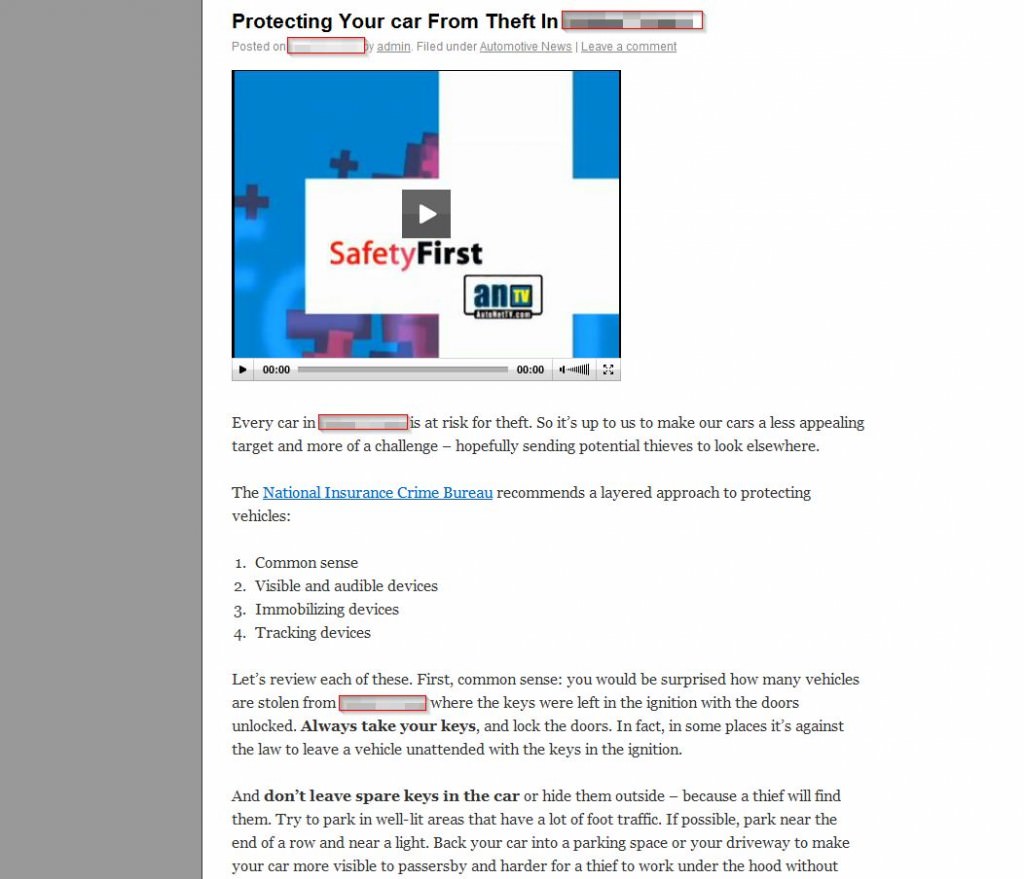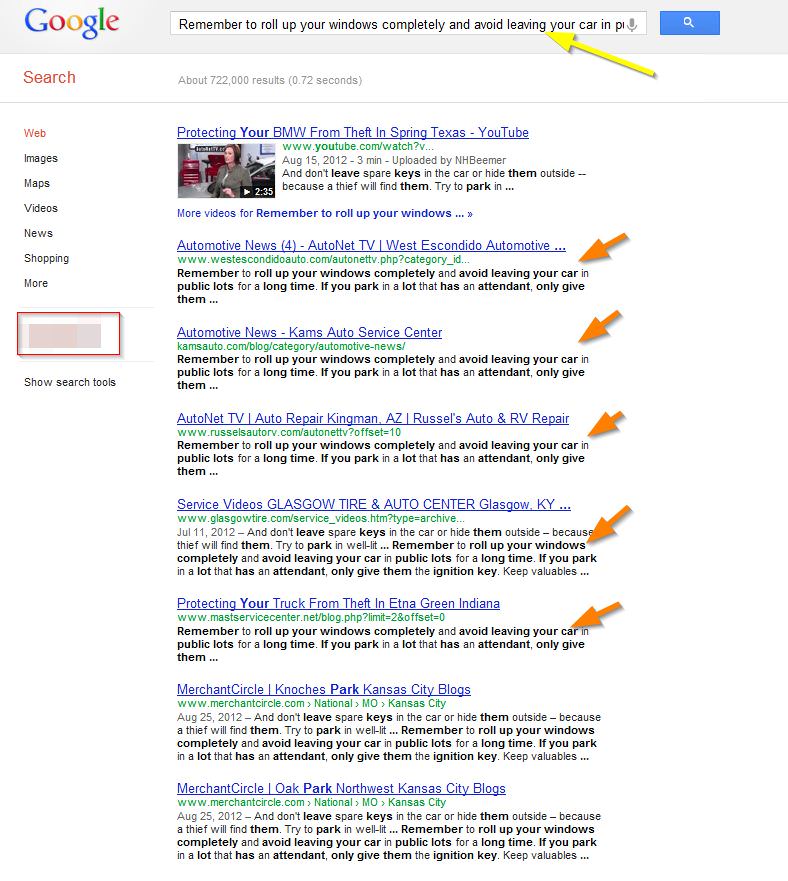 I thought today I’d address those so-called content farms that are employed by many service industry sites around the country. In these cases, a small business, such as an auto repair business, will launch a site and subscribe to a content feed which updates their site every week or so. The promise is that this update will help with local rank – this is how it’s sold. And the main reason small shops buy it is “to improve our SEO” all three of the shop owners I talked to told me. One of the owners was incredibly articulate, and truly interested in why I had called.
I thought today I’d address those so-called content farms that are employed by many service industry sites around the country. In these cases, a small business, such as an auto repair business, will launch a site and subscribe to a content feed which updates their site every week or so. The promise is that this update will help with local rank – this is how it’s sold. And the main reason small shops buy it is “to improve our SEO” all three of the shop owners I talked to told me. One of the owners was incredibly articulate, and truly interested in why I had called.
Well I’ve got bad news. Buying and re-serving content like this will not help your SEO in most cases. I went to this (probably great) car shop online and grabbed a slice of their content. The first thing is to see if it passes the SEO smell test. It doesn’t. In every case where I blurred the text it had the same city name. It was obvious this was robotically created and the content was not engaging. Anyway, I took a screenshot of the post, protecting the innocent:
Then I went to Google with a couple of sentences in the clipboard. And did a search on it. You can see the issue immediately.
The same content has been sold to multiple customers. All of them expecting this to help their SEO.
What effect did this have on Google? I proxied over to nearby cities and searched for a selection of obvious keywords and the post could not be found.
The Lesson Here?
Google hates duplicate content. And it hates content farms. So don’t buy it. Write your own, even if it’s once a month. Write things that are interesting to others in your locale. And ask them to link to it. Rinse and repeat next month. Buying this content doesn’t help, and it lures you into a false sense of security that you’re “doing SEO.” The opportunity costs can really add up. What if you had done real SEO in the past 12 months? How many more new customers went to a competitor because you couldn’t be found?
The only thing that works for SEO is original, useful content which is linked from authority sites. If you want to see a shop blog that engages, here’s an example from Lexington.
Avoid the snake oil and use the web to leap ahead!
chicks photo used under creative commons license – photo (cc) Dominic Alves/Flickr










Scott, thanks for your post. This was really helpful. I haven’t run into this too often yet here in MA. But companies always keep trying new tricks to lure small business owners into spending their hard earned money. Something I see here very often that small businesses get lured into PPC campaigns that do not produce any leads because those campaigns are not being managed at all.